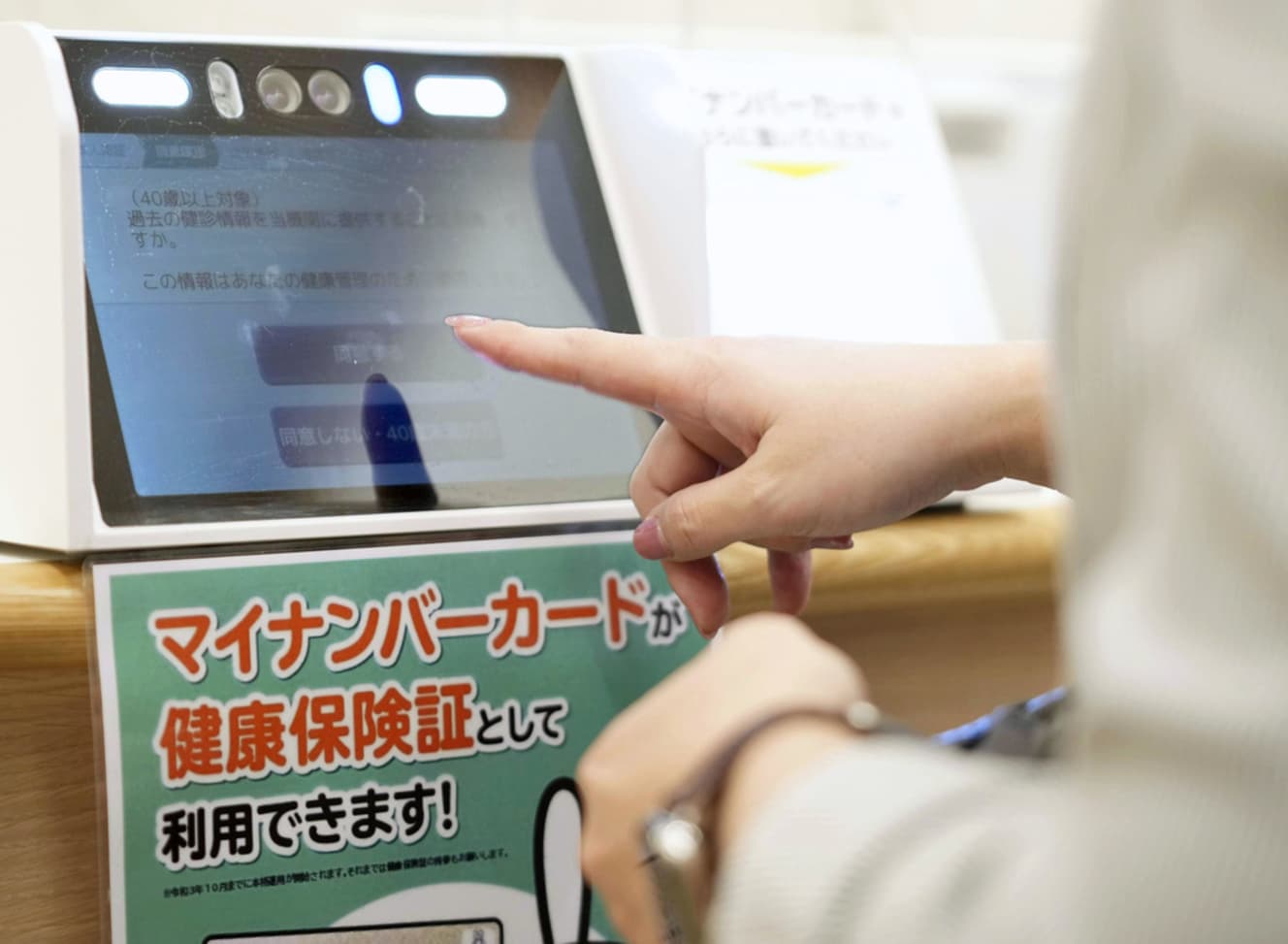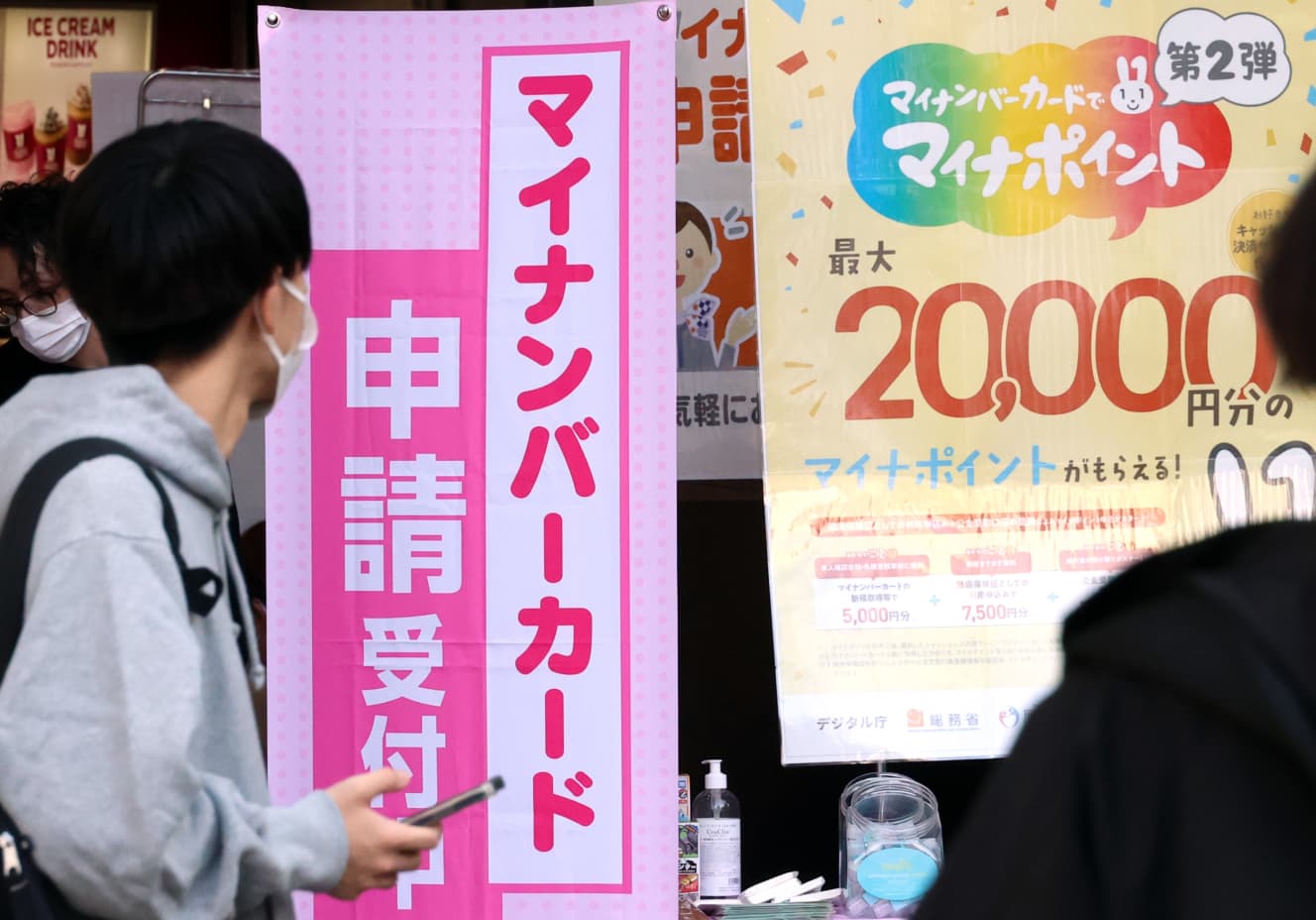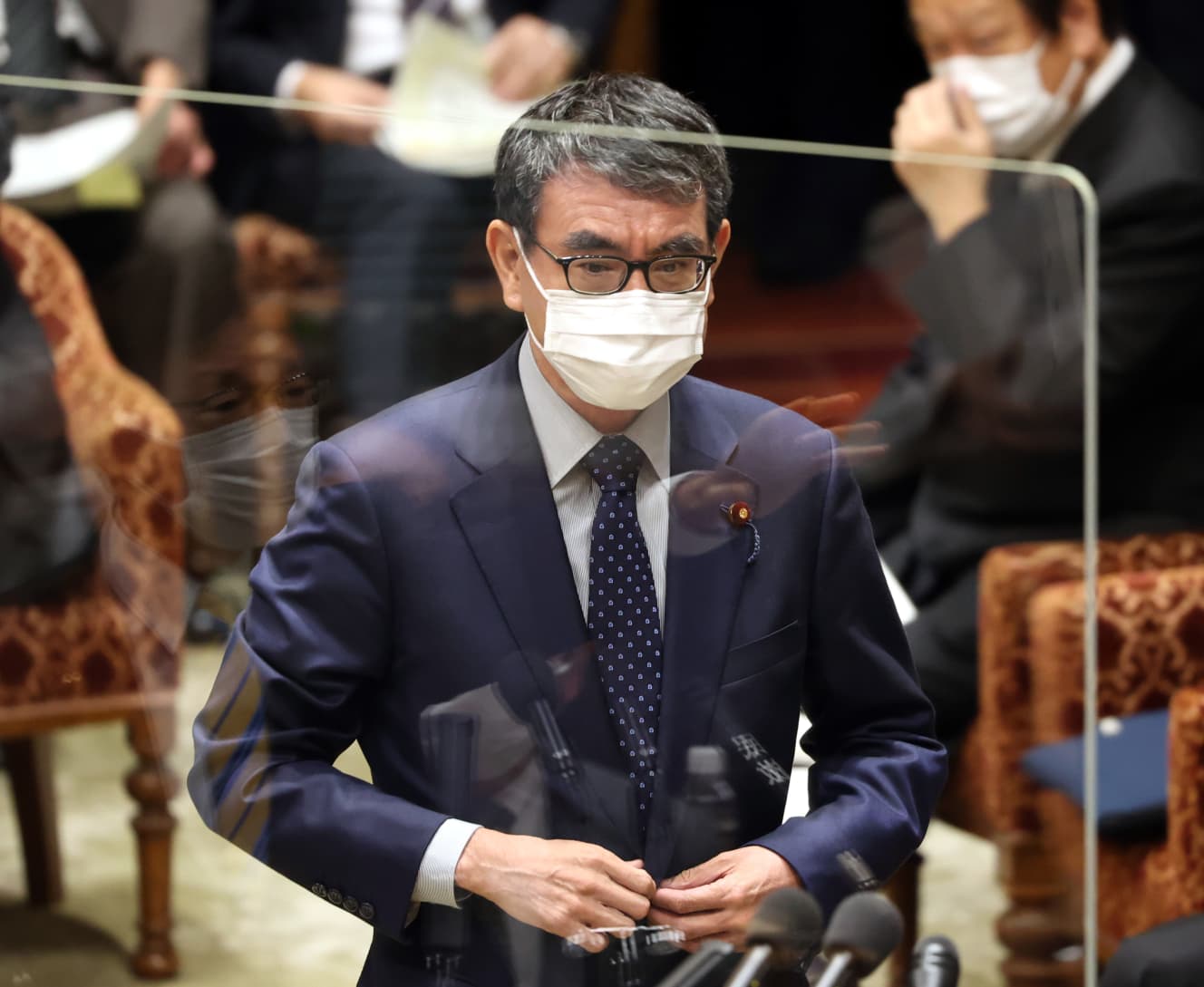IT literacy…the “real reason” that is hindering the spread of miner insurance cards.
Why turn a blind eye to the “benefits” of…
The government has announced a plan to abolish the current paper health insurance card in principle and replace it with the “miner insurance card,” which is integrated with the miner number card, in the fall of 2024, causing a stir.
With the mina-insurance card, a patient’s health insurance card, consultation card, and medication book will all be stored on a single card, allowing the cardholder to know his/her hospital visit history, details of visits, prescription drugs, etc., and to check the combination of medications. In addition, the monthly presentation of the insurance card will no longer be necessary, and there will be no need to switch to another card when moving, finding a new job, or changing jobs, among other benefits.
However, as of October 23, the number of medical institutions and pharmacies in Japan that can use the “miner’s insurance card” as announced by the Ministry of Health, Labor and Welfare is approximately 74,000. On the other hand, the number of medical institutions and pharmacies in Japan as a whole currently stands at 240,000, meaning that only about 30% of these places can actually use the card.
In fact, there is no denying that it is not easy for the elderly to perform procedures, remember PINs, etc. in Japan’s super-aged society, where many households are caring for the elderly.
When asked why IT has not been adopted in the medical field, many doctors and other healthcare professionals said, “We have our hands full with Corona,” or “We need to prepare various preparations for the introduction of IT, including the preparation of lines.

Seventy percent of the replies to the questionnaire to medical institutions were by fax…
On the other hand, however, the Japanese healthcare system is actually partly to blame, says sustainability scholar Kento Sasano, a member of the World Economic Forum (WEF) and the UN Principles for Responsible Investment (PRI), who leads a genius group researching and developing new SDG/ESG data science techniques.
The burden on health care workers in the COVID-19 crisis is immeasurable. It is very hard to pay attention to it. And now we have a policy called the ‘Mynah Insurance Card.
Japan has always had low IT literacy among doctors, and a 2019 survey by the Japan Medical Association’s Research Institute for General Policy In a survey conducted by the Japan Medical Association’s Policy Research Institute in 2019, only 30% of all respondents answered online, and the remaining 70% answered by fax.
Not only in medicine, but also in other fields, Japan has low IT literacy and weak security, which is why, despite requests from other countries to join the confidential information sharing framework “Five Eyes Alliance”
Using the example of a protest announced on October 17 by the Osaka Prefecture Association of Health Physicians, one of the groups that is adamantly opposed to the abolition of the insurance card, Sasano makes the following point: “The Osaka Prefecture Association of Health Physicians has been calling for the abolition of the insurance card.
The Osaka Prefecture Association of Health Physicians describes the protest as a ‘hostage-taking approach to the health insurance card, which is the foundation of the universal health insurance system aimed at realizing Article 25 of the Constitution,’ but is that really an appropriate way to describe it? It is unreasonable to take the issue to a constitutional argument without considering the arguments made in Articles 13 and 25 of the Constitution.
Besides, with regard to information systems, it has become common sense for companies to make digitalization policies as a strategy, whereas organizations such as schools and hospitals are too protected by the state and tend to be “passive” as a basic premise.
Now, however, with the demand for a ‘new capitalism’, we are at a stage where a fundamental solution is far from possible without changing the old and outdated aspects of healthcare.
Besides, because administrative services are ‘application-based,’ the government has a desire to break out of the situation where only a few percent of people are able to use them, despite the fact that there are many useful and wonderful administrative services available.
He also stresses the need to correct the situation in light of the many facts that corona subsidies and medical subsidies have been unfairly misused, and that people do not understand the convenience of having insurance, public assistance, welfare, and various other things attached to them, all linked by my number, and being able to apply for one-stop services at the counter.
Moreover, even though subsidies are available for equipment that reads the MyNumber insurance card, they still don’t do it,” he said.
If doctors who do not have a digital environment are provided with a separate computer, they can display the prescription drug history, precautions, and other information on their insurance cards, which can also be linked to an automated appointment system. In the long run, this would be a ‘work style reform’ for those in the medical industry. Still, they don’t do it.
Nowadays, both children and the elderly have smartphones, so I think we need to connect with the world ‘with digital’ along with ‘with Corona.

The key is “transparency of information.
While there are many conveniences, everyone thinks about the issue of “security. However, he says that this too is often misunderstood.
He says, “It is very likely that nothing can be misused just because someone knows your number. This is because medical institutions and pharmacies use only the ‘electronic certificate’ data on the IC chip in the MyNumber insurance card. If you lose your mina-number card, you need to be careful, but that is the same for the conventional insurance card.
Internationally, transparency of information, that is, ‘being able to properly trace how our personal information flows,’ is considered important, and many people mistakenly think that it will be misused behind the scenes, but by proceeding with the my number card, on the contrary, that part will be traceable and rather transparent In terms of personal information in the medical field, the number of patients is not so important.
In terms of personal information in medical care, things that have been done with paper medical records or copied and pasted into electronic medical records are more dangerous. Many people think that university professors and doctors can be trusted without worry, but in fact, medical institutions in Japan are beginning to be subjected to cyber attacks.
For the medical industry, there is also the benefit of linking personal health information, information on medical institutions, and the development and approval of basic research and new drugs, which Japan is weak in, to the destination to be used as a digital insurance card.”
Compared to other countries, such as South Korea and Germany, where digitalization has made progress, Japan has been slow to make progress, according to Mr. Sasano.
However, in South Korea, for example, injustice is denounced, demonstrations are held, and after the president leaves office, he is arrested on suspicion of corruption, while in Japan, the LDP has been in power for a long time even after the strong ties between the Unification Church and the LDP were revealed.
Perhaps it is the Japanese national character, if you will, that “does not see politics and digitalization as its own affair.
What the medical associations should point out is the “process
In addition, there may be technical concerns about whether it is really safe to hand over information to a country that produces a virtually useless contact verification application such as “COCOA,” as well as concerns about the stench of carrots dangled in front of us in plain sight, such as “20,000 yen worth of myna points” being awarded.
There are certainly some parts of Japan that are unique to Japan,” he said.
For example, in Estonia, the government has made it a “national policy” to create a very high-quality system in a speedy manner in cooperation with a venture company. Furthermore, Estonia has a national information system called “RIHA” to prevent the wasteful creation of duplicate systems.
In this respect, the public knows that Japan is very bad at dealing with companies.
Taking the United States as an example, there is a platform called “Code.gov” where open source software (OSS) can be shared, so that the government and citizens can collaborate on open source projects. In order to get people to perform administrative procedures electronically, we have created a mechanism where citizens can participate in the process by disclosing on the Internet, ‘We plan to create a registration system for the health care system using this kind of algorithm.
Such a system is groundbreaking because it is based on the idea of ‘co-creation’ and allows talented people inside and outside the government to work together to ensure the reliability and effectiveness of the information system managed by the government.
When we consider whether there is a better design, NPOs and other citizens often come up with better ideas than politicians and bureaucrats, and the government has a mechanism in place to flexibly update the system in the direction of ‘Then, let’s change to these specifications.

So what about Japan? ……
Even for a single insurance card reader, Fujitsu, Panasonic, Almex, Canon, and Atlas Information Service have been selected from the beginning, and all of them are released as an after-the-fact report in the news media after they are all completed. The only line is NTT, right? I think that is where the distrust comes from.
Medical information systems have a history of being left to a few vendor companies, and unless we reflect on and improve that, we will be swallowed whole and dragged down.
The point of the tussle is not only with ‘the my number card itself,’ but rather, the medical associations should point out the shallowness of ‘the creation of the system surrounding the my number card.
Internationally, ‘co-regulation,’ which is created and monitored together with citizens, is gaining attention. It is out of date to say, “We leave everything to the government” or “We leave everything to the medical associations. We need structural reforms at a deeper level, to open up the process of creating together and to allow citizen participation.
Kento Sasano is a sustainability scholar. After wandering the borderline between life and death in high school, he was awakened to philosophy. He is a gold medalist in the Philosophy Olympiad, a graduate of Kyoto University’s Faculty of Law, and the University of Tokyo’s Interfaculty Initiative in Information Studies and Graduate School of Interdisciplinary Information Studies, and has held a total of five corporate officer positions, etc. In April 2021, he was appointed Representative Director of Scrumy Inc. In April 2022, he was appointed Representative Director of Sustainability Association, Inc. Aiming at SX (Sustainability Transformation) of capitalism, he conducts advanced research and projects related to sustainability studies from the perspective of social informatics (ESG data science, etc.).
Interview and text by: Wakako Tago
Born in 1973. After working for a publishing company and an advertising production company, became a freelance writer. She interviews actors for weekly and monthly magazines, and writes columns on dramas for various media. His main publications include "All Important Things Are Taught by Morning Drama" (Ota Publishing), "KinKi Kids Owarinaki Michi" and "Hey! Say! JUMP 9 no Tobira ga Open Tokimono" (both published by Earls Publishing).